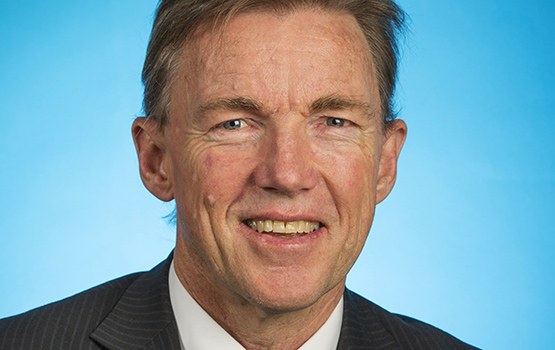Monash Professor John Thwaites appointed to prestigious The Lancet COVID-19 Commission
Professor John Thwaites, Chair of Monash University’s Sustainable Development Institute & ClimateWorks Australia, is the only Australian appointed to the prestigious The Lancet COVID-19 Commission.
Professor Thwaites is one of 26 eminent global scholars, public health professionals, environmentalists and policy makers to be part of this Commission, which is chaired by Professor Jeffrey Sachs – a world-renowned economist and pioneer in sustainable development.
The Lancet COVID-19 Commission will help speed up global, equitable, and lasting solutions to the pandemic. The Commissioners join this effort in the shared belief that effective solutions can be found on the basis of global cooperation, social justice, sustainable development, and good governance that builds on public trust.
A key aim of this Commission is to develop the awareness and adoption worldwide of successful strategies to suppress transmission. Another key aim is to ensure that any new COVID-19 vaccines and other key technologies are equitably accessible across the world.
The COVID-19 pandemic confronts the world with urgent and unsolved challenges. The pandemic marks the third deadly outbreak due to a coronavirus after severe acute respiratory syndrome in 2003 and Middle East respiratory syndrome in 2012.
In the absence of effective testing and contact tracing systems in many countries, COVID-19 has claimed more than 500,000 lives. The pandemic has also highlighted the inequitable access to testing equipment, hospital facilities, especially intensive care units, and protective personal equipment for front-line workers.
Professor Thwaites said The Lancet COVID-19 Commission is an opportunity to make a contribution to one of the biggest global challenges faced in his lifetime.
“Skilled political leadership, good communication and an understanding of human behavior will be critical for a successful response to the pandemic,” Professor Thwaites said.
“At Monash Sustainable Development Institute and BehaviourWorks Australia, we spend a lot of time working with decision makers, translating knowledge into policy.
“I hope to use this experience and my experience as a former Health and Environment Minister to ensure that the recommendations we make are useful for decision makers and lead to the behaviour changes necessary to successfully respond to the pandemic.”
The Commission identifies four core challenges that must be faced worldwide to tackle the growing pandemic.
To suppress the pandemic as rapidly and decisively as possible.
To meet the dire and pressing needs of vulnerable groups such as the poor, minorities, and elderly.
To prevent the public health emergency from turning into a fulminate financial crisis for governments, businesses, and households.
To build the world back better, with resilient health systems, global institutions, and economies that are being transformed on the basis of sustainable and inclusive development.
The Commission will also reach out to regional groupings, including the African Union, the Association of Southeast Asian Nations (ASEAN), the Southern Common Market (MERCOSUR), and others, to liaise with, hear evidence from, and support, when possible, the efforts of these bodies in fighting the pandemic.
The Commission also expects to establish taskforces that will focus on specific dimensions of the pandemic.
Some topics these taskforces may focus on include: the nature, origin, and prevention of zoonotic diseases; public health systems for surveillance, testing, tracing, and isolating COVID-19 cases; the development and distribution of COVID-19 vaccines and medicines; the protection of vulnerable groups; wellbeing and mental health in the context of pandemic control; equitable and efficient financing of pandemic control; and building back better in the post-COVID-19 economy to achieve the global goals of sustainable development.
The Commission had its first meeting on 23 June, and will issue its first public statement in September to coincide with the UN General Assembly. The Commission will deliver its first interim report in January, 2021.
For more information on The Lancet COVID-19 Commission, please visit https://covid19commission.org/.

